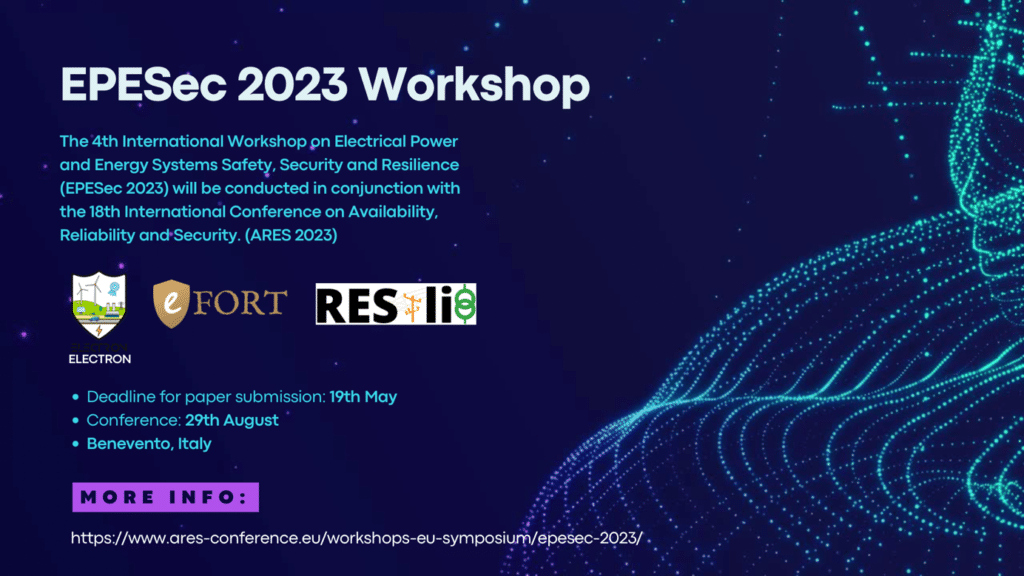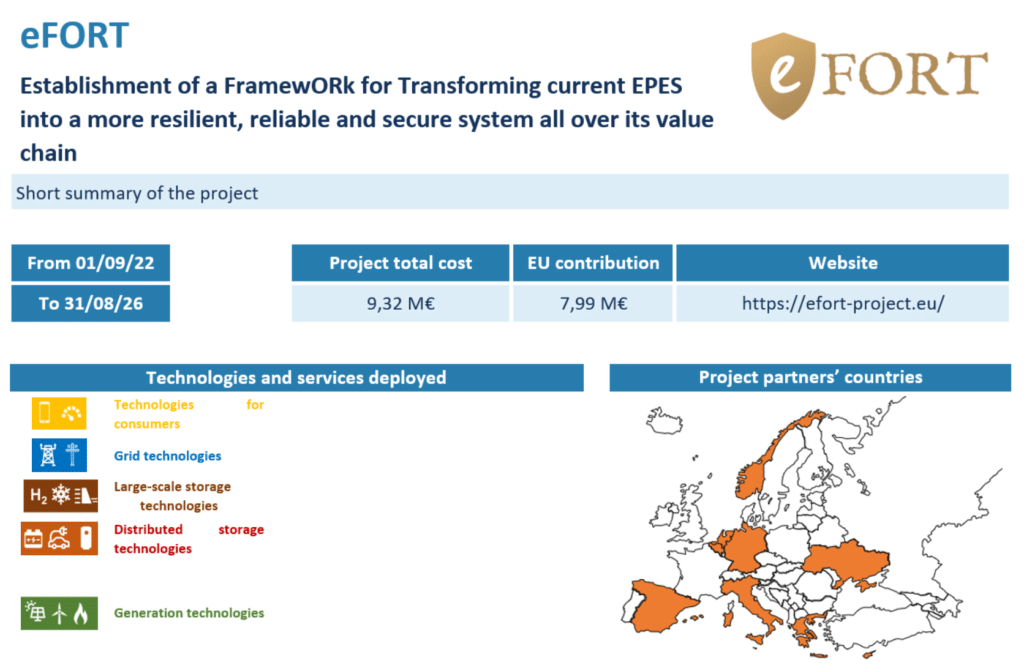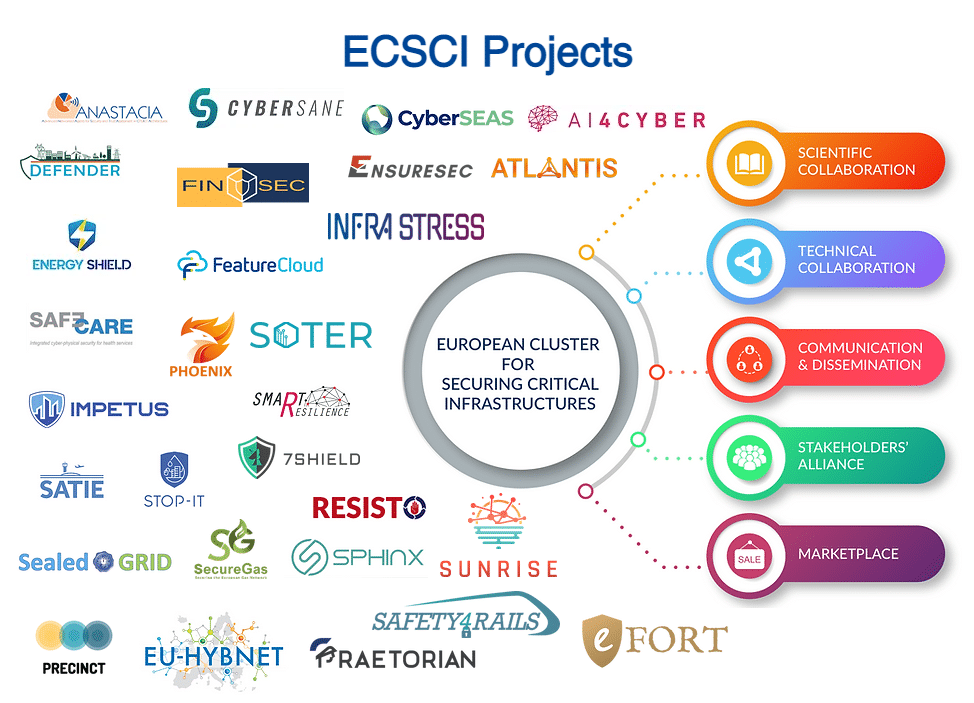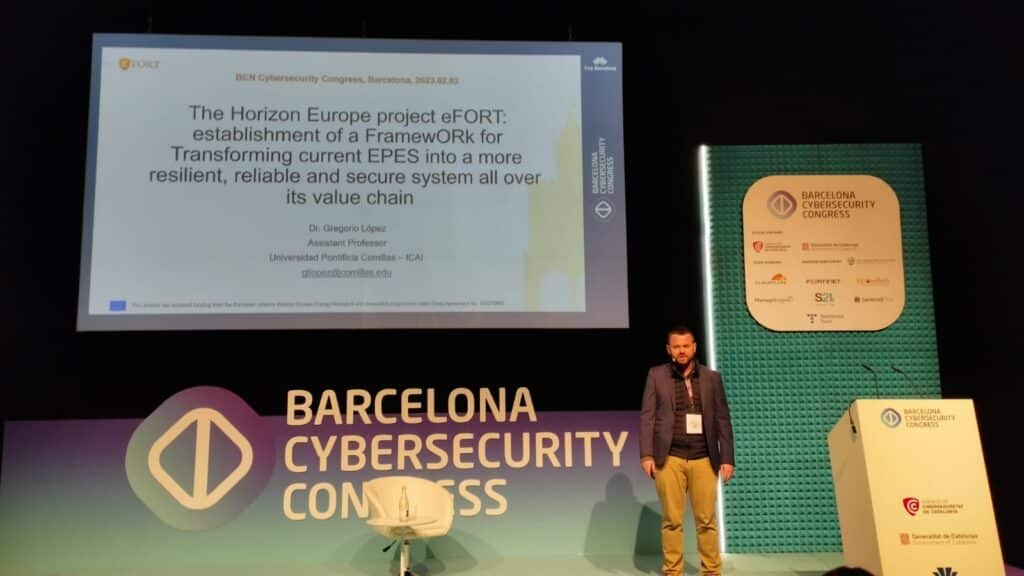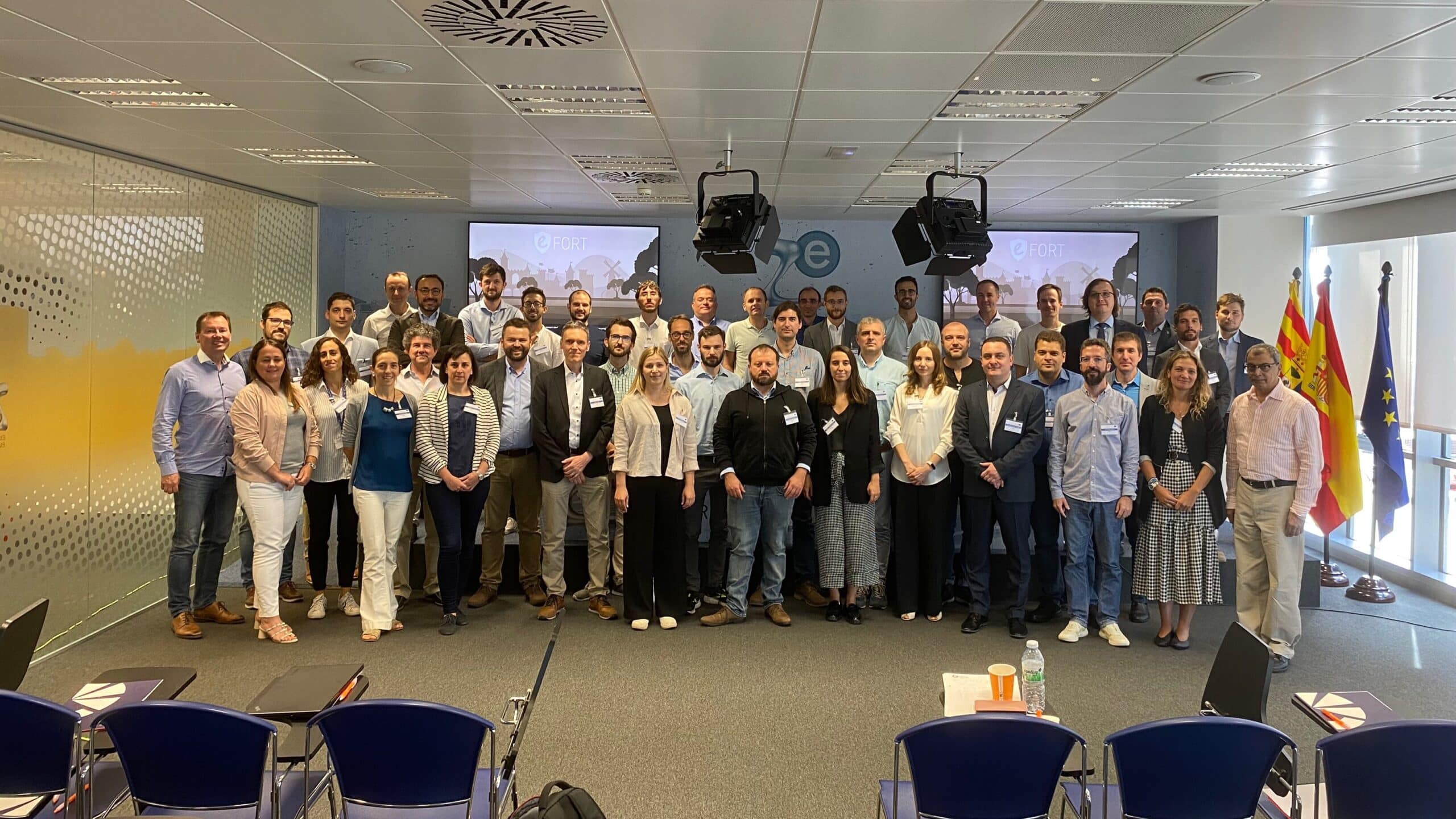The eFORT project is not just about securing the electrical grid; it’s about securing the future of our societies. As Europe strives for a more sustainable and interconnected energy landscape, the eFORT project and the people behind it strive to ensure that Europe’s power system remains secure, reliable, and sustainable in the long run.
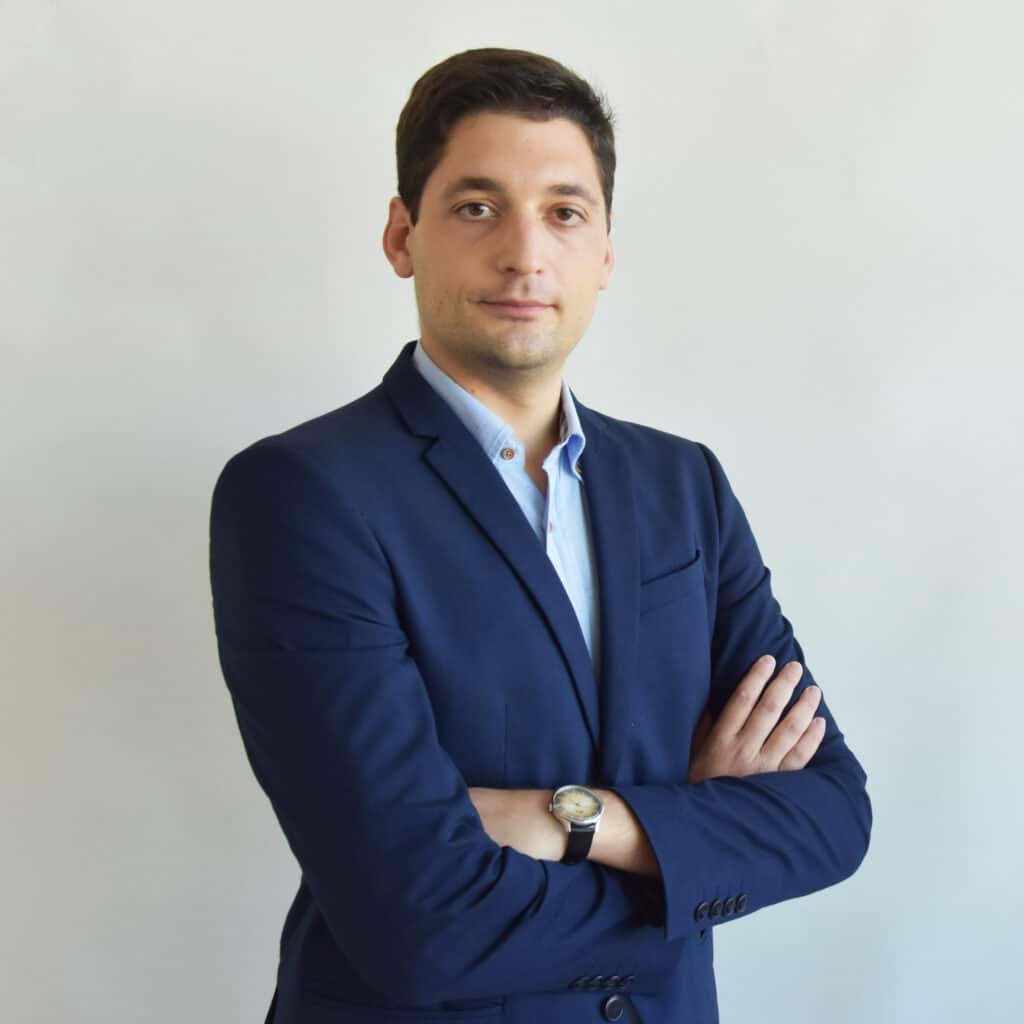
In this interview Jesús Torres, eFORT’s technical coordinator and Director of the ICT integration group at CIRCE, shares his insights about the eFORT project.
Can you tell what eFORT is about?
This electricity system faces a broad variety of threats, both in terms of cybersecurity and physical or other kinds of threats, such as extreme weather events, manmade hazards or equipment failures. Digital transition is already a reality, and a key to this critical system. At the same time, according to the European Commission, cyberattacks have increased by 400% in the last few years.
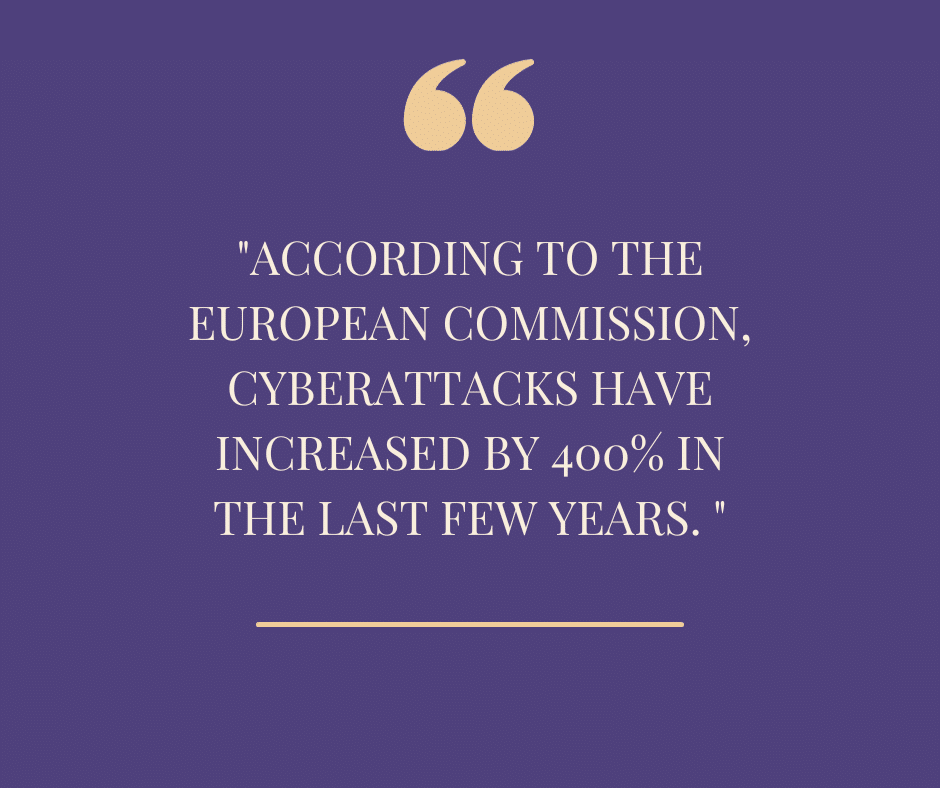
In eFORT, we address these issues and aim to make the electricity system more secure, reliable and sustainable in the future. For this purpose, we will develop a very comprehensive and versatile range of technologies, with a security-by-design approach. These technologies will help us to identify, prevent and mitigate risks and vulnerabilities in power grids.
What is unique about the eFORT approach?
In the project, we encounter a high diversity of information system and tools, which we address by setting up the rules for the eFORT integration platform from the very beginning. Instead of a central platform setting up the rules for our demo sites, users and data management, we do it the other way around. Our focus is on the users, systems and needs in each demo, and ensuring their interoperability with data collection and representation in our central systems. This will enable us to develop a common framework and to produce significant contributions to the regulations activities of the European Commission.
How will the solutions be demonstrated?
To test the solutions, we will deploy four demo sites which are located in the Netherlands, Ukraine, Spain and Italy.
The demo in the Netherlands, hosted by TU Delft, represents a complete section of the transmission area of our power system. It consists of a digital twin for this section and a real size and self-contained control room of the futures, a great field to set up training activities.
There is also a demo site in Spain, which covers the distribution system. It sets the focus on distributed energy resources and the users in terms of demand response control incentivization. For that, we will also test and validate security responses and resilience of IoT devices.
The Italian site is a complete section of medium and low voltage of the distribution network. This demo is more focused on automation and resilience action of the grid, and electrical behavior in terms of blackout recovery, resilience and oscillation response.
And finally, the Ukrainian demo is entirely focused on digital substation. We will set up new technologies to capture and analyze real events and digital traffic of the substation in order to enable, deploy and test intrusion detection system and new machine learning based mechanisms to get advanced security response.
Why do does eFORT address the issues on an European level?
In Europe, the interconnection between states in the energy sector is a really significant aspect of the power system. These critical services are becoming more and more dependent of digital networks and they need to be protected.
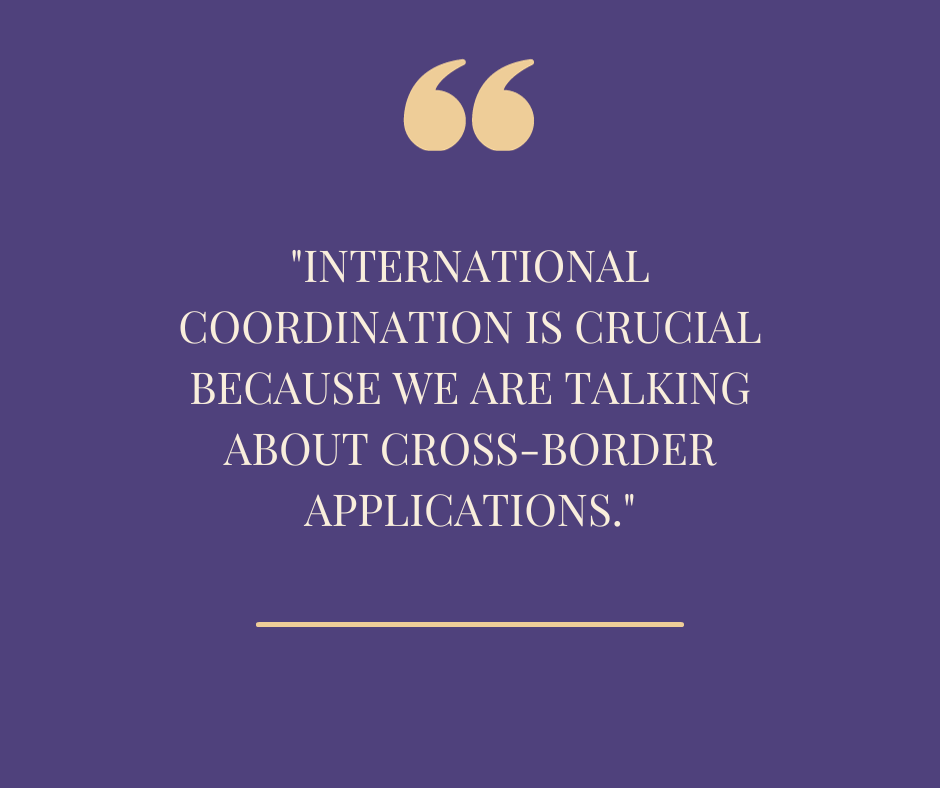
Two recent directives have been enacted by the European Commisison to standardize and establish a minimum set of rules, and to have a common framework to respond to the risks. eFORT aims to contribute to the standardization, and international coordination is crucial because we are talking about cross-border applications.
Finally, unfortunately, the aggression against Ukraine has shown how attacks on critical infrastructure, and in particular on energy infrastructures, have now a hybrid nature, both cyber and physical, and are considered key actions to damage the stability and resources of a country.
How will the project benefit European citizens?
Securing and enhancing the resilience of the electrical power system has a direct impact on the everyday lives of European citizens. A few specific examples of this impact are safe energy supply, more stable prices, and reduced dependence on specific energy sources. This also paves the way for a greener energy mix that is carbon reduced and more climate friendly, embracing renewable energy sources.
Additionally, the prevention of incidents and risks, while often unnoticed, plays a critical role in ensuring the continuity of services. Proactive measures ensure the resilience and security of the electrical grid, and the successful prevention of accidents, even if it is considered a silent success.
eFORT’s approach is to ensure that the power grid can handle the fluctuating nature of renewables and maintain stability in the face of unique challenges, regardless of the energy source.

